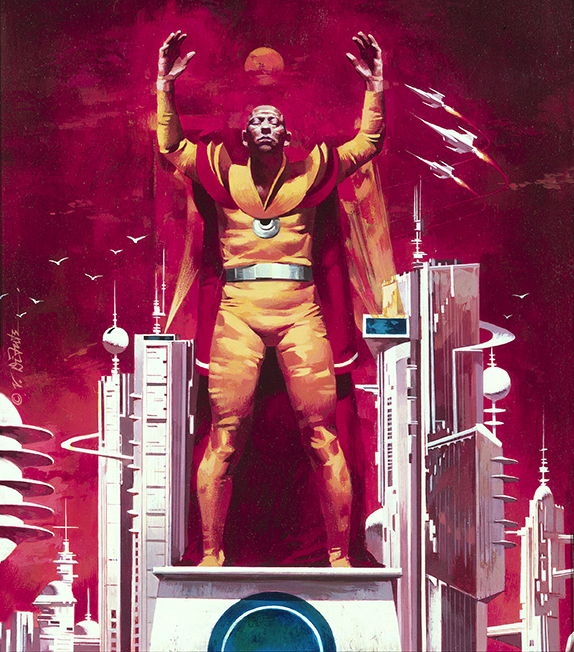A Name, To Start
The Perfect First Word for Your Next Story
by Jack Windeyer
I have it. Well, at the very least, I have an option for you to consider. Lest you think this is clickbait, let’s get right to it. If you thumb through a nearby speculative-fiction magazine, you’re likely to see at least one story that begins like this:
Reed Ellis had an uncomfortable deathbed.
—Reflection by Aaron Wright
Notice that the story starts with the name of the protagonist. You may wonder why so many stories begin this way, and I’d tell you it’s because these kinds of sentences manage to be both information dense and word sparse.
Imagine that before the story begins the reader is staring at an empty canvas on an easel. Sure, they may have some guesses about what’s coming based on the story’s title, the publication or the author’s name, but there’s no paint on the canvas–the story is a total mystery.
Ask yourself, what should the reader see on the canvas after the first sentence? A landscape? Maybe a person? Or an object that hints at what’s to come like a knife?
How about all three: setting, character and conflict?
Look again at the first sentence by Wright. With six words, he fills in that white emptiness with a man named Reed who is lying in a hospital room waiting to die. And all that Reed can think about at that moment is how uncomfortable his bed is.
Setting: hospital room. Character: Reed Ellis. Conflict: he’s dying.
All three for the price of six words.
And I bet you can’t help but fill in some of the gaps between those words with your own assumptions. Mine? I get the sense that he’s probably sick, possibly cantankerous and likely old. These first conjectures are important, because half the fun of reading is seeing if your assumptions hold up as the story progresses.
But if every writer started every story with the same two words (first name and last), reading would be a chore. Look for ways, both small and large, to shake things up without losing the benefits of introducing your character early.
For instance, the same effect can be achieved by name dropping the protagonist in the first sentence rather than the first word:
In the swaying back of the bush truck, Elise, eyes shut, sharpens her machete and prays.
—We Are Destroyers by Rich Larson
Notice the similarities between Larson’s first sentence and Ellis’s: in both, we get a protagonist, a setting and the beginnings of conflict. There’s a great deal of paint already on the canvas; a clear picture is forming before our eyes.
But an opening sentence doesn’t always have to paint such clear lines. Sometimes, it should give broad strokes, should hold on to its mystery:
She will remember three suns.
—Twiceborn by C.L. Kagmi
Cryptic but effective still.
Rather than a name, the reader gets a pronoun, enough to situate them without giving too much away. The setting appears in abstract: three suns hanging in the void. And, if I can stretch the comparison, there’s a hint of tension in the language itself: the future tense hints at the end of the story, where a conflict will be resolved, raising the question: what conflict is coming?
Up to this point, all of the examples we’ve looked at have taken a 3rd person point of view, but this strategy works equally well for the 1st person viewpoint. Take this incredible first sentence for example:
My prison name is FMA16549EW.
—More by Nancy Kress
As you can see, there are myriad ways of using this technique, but the most important takeaway is this: if you fail to introduce a character by the end of your first sentence, then your story as a whole will also fail.
Only joking! You can lower those hackles. There are many effective ways to begin a short story, but the trick is knowing what effect each strategy has on the reader and to select the one best suited to your task.
To prove the point, I’ll leave you with an entire first paragraph that doesn’t include a single hint of a protagonist but still does a bang-up job at enticing the reader to continue on:
The mission went wrong early. Only nine years out. Past the Kuiper and deep into the Oort. The tone of the transmissions had changed over time— the complaints small at first, then growing more heated. More personal.
—Sacrificial Iron by Ted Kosmatka